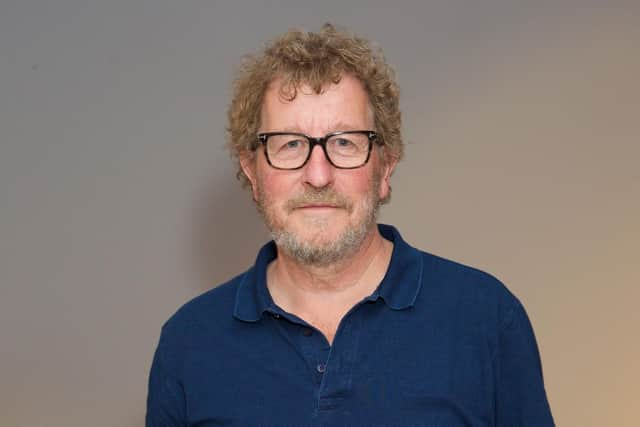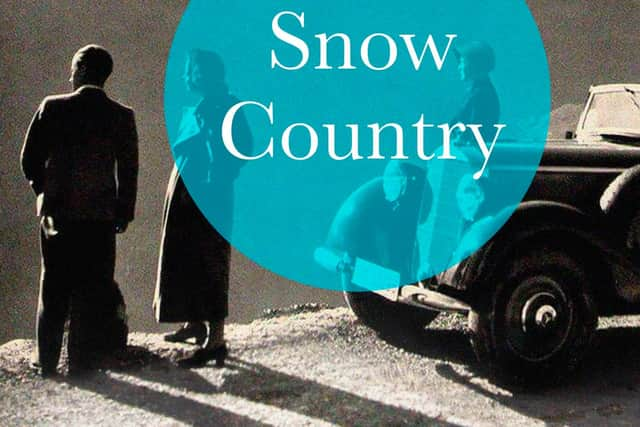Book review: Snow Country, by Sebastian Faulks


Way back in 2005 Sebastian Faulks published a novel called Human Traces which was to be the first in a trilogy set in Austria, most of the action being set in a sanitorium called Schloss Seeblick, established by two young doctor-researchers. Now he returns to the scene. It is rare and fascinating for a novelist to nurse an idea for so many years while writing other generally admirable but very different novels in the interval.
Snow Country is episodic with no strong plot. It depends for its interest, which is considerable, on the characters and conversation. It is a novel of ideas, an exploration of the question of human consciousness. It begins in Vienna in 1906 and extends to the middle Thirties. The two most important characters are Anton, a journalist, and Lena, a poor girl who is eventually employed on the House staff at the Schloss.
Advertisement
Hide AdAs a young man Anton is shy and struggling, at first selling only the occasional article to magazines or newspapers. He is shy with no experience of women. He meets and falls in love with Delphine, a French woman a few years older than himself. She gives him the confidence he lacks. His career takes off. In 1914 he is sent to Paris to cover a sensational trial. While he is there war breaks out, and when he returns to Vienna Delphine has disappeared. He never learns what has become of her and the sense of loss will dominate his life.


Lena is the daughter of Carina, an alcoholic part-time prostitute in a small town near the Schloss in Carinthia, four hours by train from Vienna. She is Carina’s sixth child but the first not to be consigned to an orphanage. Her first words in the novel at the age of eight are “War. What does it mean?” “How should I know?” Carina replies. How indeed, in 1914, did anyone know? Thanks to an undistinguished but kindly local writer who thinks he might be Lena’s father, she learns to read and write, develops a talent for drawing, and finds work in a local dress shop. Grown-up, she moves to Vienna. Unsure of herself, lonely, still a shop-assistant, she has what is almost an affair with an idealistic lawyer, Rudolph, then, like her mother, drinks too much and takes money from male visitors. Eventually, afflicted by self-disgust, she returns home and finds work at the Schloss where she comes upon a sympathetic employer in Martha, the daughter of one of the sanitorium’s founders.
In 1933 Anton comes to the Schloss on a commission from a magazine. After talking to Martha – an excellent character – he asks to remain as a patient. He is still obsessed by the loss of Delphine. Perhaps the talking cure practised there will heal him. Back in Vienna, he has had prostitutes dress as Delphine, unavailingly. His presence disturbs Lena; she recognizes him as one of her visitors in Vienna.
There is charm in the description of life at the Schloss and in Martha’s commitment to healing through talk. Indeed there are passages in which the Schloss seems idyllic, but these passages are played out against a background of anxiety and fear as Social Democracy is destroyed in Austria and there is a terrifying awareness of worse to follow.
Faulks gives his novel as epigraph a letter from Joseph Roth to Stefan Zweig: “we are drifting towards great catastrophes. They have succeeded in establishing a reign of barbarity. Do not fool yourself. Hell reigns.”
I assume its reign will be at the dark heart of the last book of the trilogy. Lena ends this one by asking “what if it turns out it was all a joke... The whole thing of being alive at all…” One waits to find out if there is an answer to that. I trust that the wait will not be near as long as the interval between the first and second books of the trilogy. Meanwhile, cherish the intelligence and humanity of Snow Country. Anton, asked if his book has sold well, admits it didn’t, but nevertheless sold much better than Dr Freud’s. There’s humour here as well, as in almost all good novels; and this is a very good one.
Snow Country, by Sebastian Faulks, Hutchinson, 353pp, £20
A message from the Editor:
Advertisement
Hide AdThank you for reading this article. We're more reliant on your support than ever as the shift in consumer habits brought about by coronavirus impacts our advertisers.
If you haven't already, please consider supporting our trusted, fact-checked journalism by taking out a digital subscription at https://www.scotsman.com/subscriptions